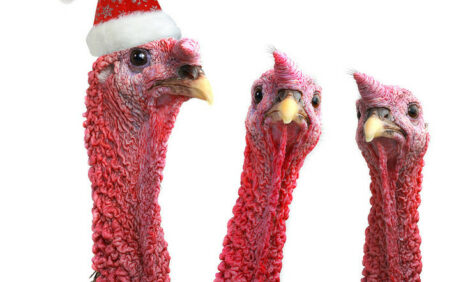



MRSA Found in Animals but No Threat in Food
EU - The European public health agencies have evaluated methicillin resistance of Staphylococcus aureus. They conclude that food-producing animals such as pigs, veal calves and broiler chickens often carry a specific strain of MRSA called CC398, without symptoms. While food may be contaminated by MRSA, there is currently no evidence that eating or handling contaminated food can lead to an increased health risk for humans.The European Food Safety Authority (EFSA), the European Centre for Disease Control and Prevention (ECDC) and the European Medicines Agency (EMEA) have published a joint Scientific Report on methicillin-resistant Staphylococcus aureus (MRSA) in livestock, pets and foods.
Following a request from the European Commission, EFSA's Panel on Biological Hazards and ECDC concluded that food-producing animals such as pigs, veal calves and broiler chickens often carry without symptoms a specific strain of MRSA called CC398. However, while food may be contaminated by MRSA, there is currently no evidence that eating or handling contaminated food can lead to an increased health risk for humans.
The report also noted that people in contact with live animals that carry the CC398 strain of MRSA could be at risk of infection. This specific strain of MRSA has been associated, albeit rarely, with serious skin and soft tissue infections, pneumonia and blood poisoning in humans.
Pet animals can also be infected with MRSA, where the bacteria first pass from humans to pets and then back to humans.
The document noted the importance of basic hygiene measures, especially hand washing before and after contact with animals, and if possible, avoiding direct contact with nasal secretions, saliva and wounds.
The report concluded that as animal movement and contact between live animals and humans are likely to be important factors in the transmission of MRSA, the most effective control measures will be at farm level.
In a parallel review, the European Medicines Agency looked at the risk of colonisation or infection of livestock and companion animals with MRSA in the context of the authorisation and the use of antimicrobial veterinary medicines. The Committee for Medicinal Products for Veterinary Use (CVMP) found that MRSA is resistant to virtually all antibiotics from the beta-lactam group[1], and very often also to other antimicrobials. Prudent use of antimicrobials in animals should remain a key measure and the CVMP recommended monitoring of animal consumption of antimicrobials to identify any sources of unnecessary use. The Committee also recommended that medicines of last resort for MRSA treatment in humans should be avoided in animals, so as to ensure their continued efficacy in humans.
MRSA infections are widespread in hospitals in many EU Member States and are a major cause of hospital-acquired infections which can lead to severe illness and in some cases fatalities. In recent years a link has also been established between MRSA in animals and human MRSA infections. In the areas of the EU where MRSA is found amongst food producing animals, people in contact with these animals, such as farmers, veterinarians and their families, are at risk of acquiring an MRSA infection. Given the severity of some MRSA infection, ECDC is supportive of measures to ensure prudent use of antibiotics in food producing animals. Through the European Antibiotic Awareness Day initiative, ECDC is actively engaged in initiatives to raise awareness about the risks associated with inappropriate use of antibiotics and how to use antibiotics responsibly.
Further Reading
| - | You can view the full report by clicking here. |









